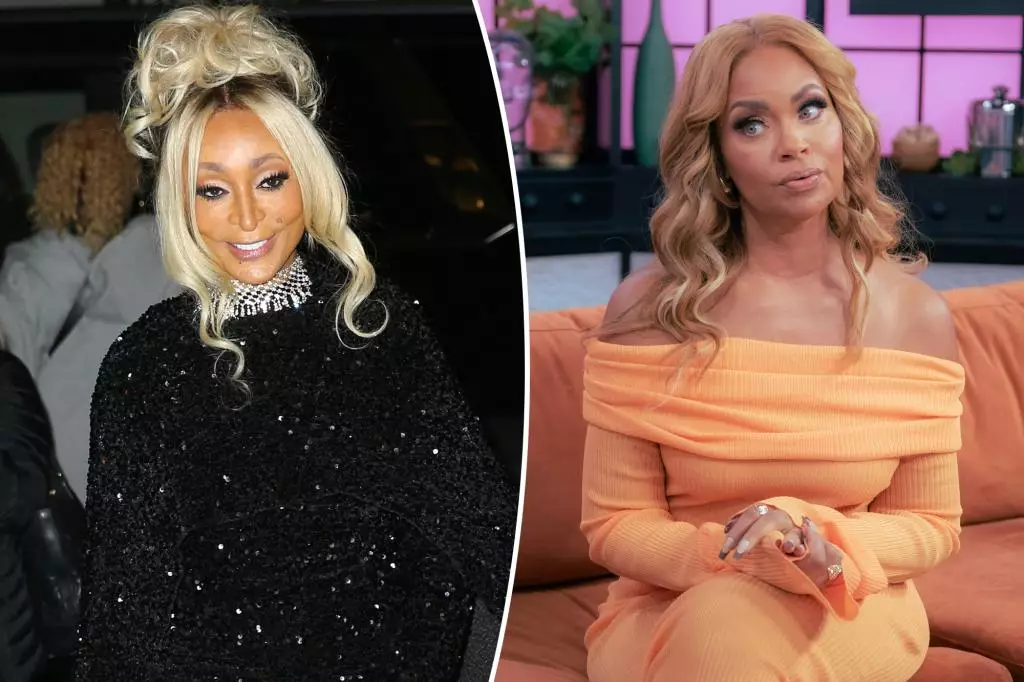Reality television is a curious beast, often intertwining the glamorous with the tumultuous. “Real Housewives of Potomac” (RHOP) serves as a riveting microcosm of this phenomenon, featuring an array of personalities bringing both drama and levity to the screen. Among these personalities is Gizelle Bryant, a cast member with a knack for humor blended skillfully with critique. In a recent interview with Page Six’s “Virtual Reali-Tea,” Bryant shared insights into her castmate Karen Huger’s recent challenges following a DUI arrest. Bryant’s reflections reveal the dual nature of reality TV, where personal struggles are live-streamed for the world to see.
Huger, often referred to as the “Grande Dame” of Potomac, has found her antics curtailed post-arrest. Bryant amusingly expressed a longing for Huger’s infamous “drunk calls,” which had become a signature of her off-screen personality. This light-hearted banter among friends hints at the darker undertones of reality fame, where exuberance can easily verve into controversy. While Bryant’s playful remarks hint at missed opportunities for late-night banter, they also underscore the serious implications of Huger’s legal woes.
A Candid Reflection on Friendship and Vulnerability
The complexity of friendships within the show serves as both a source of entertainment and genuine introspection. As the RHOP Season 9 premiere unfolds, viewers are reintroduced to a scenario where humor is laced with concern. Bryant checks in on Huger, whose vague comments about her DUI hint at the weight of her situation. This intricate web of relationships showcases how reality stars navigate their public personas amidst personal turmoil, revealing their vulnerability in the process.
Throughout the season, the dialogue surrounding Huger’s behavior has sparked speculation and debate among the cast and viewers alike. Co-stars like Jacqueline Blake have disclosed that Huger has a history of reaching out to her friends while under the influence, resulting in light-hearted escapades that veer into questionable territory. Bryant’s playful description of Huger’s 3 AM calls captures how these moments, while entertaining, can also illuminate deeper issues of accountability and the perils of excess.
The Intersection of Love and Support
Huger’s recent legal troubles amplify the role of her husband, Ray Huger, as an anchor in her life. Amidst swirling rumors of infidelity linked to her behavior, Bryant emphasized Ray’s unwavering support, asserting that it is refreshing to see a spouse standing firmly beside his partner during turbulent times. This shift from chaos to companionship offers a vital counter-narrative to the flashy drama typically associated with reality television.
As the series unfolds, the tension surrounding Huger’s DUI case serves as both a plot device and a poignant reminder of the real-life consequences that often linger beyond the screen. With court proceedings still underway, the overlap of personal consequences and public persona invites viewers to ponder the sustainable nature of notoriety in contemporary media.
Ultimately, “Real Housewives of Potomac” thrives on the unpredictable ebb and flow of its characters’ lives, balancing moments of levity with profound struggles. Bryant’s reflections invite an examination of the reality of reality TV—a landscape woven with threads of friendship, vulnerability, and the ever-looming repercussions of one’s choices in the spotlight. With each episode, the narrative evolves, reminding us that behind the glitzy facade lies a tapestry of real human experiences.

